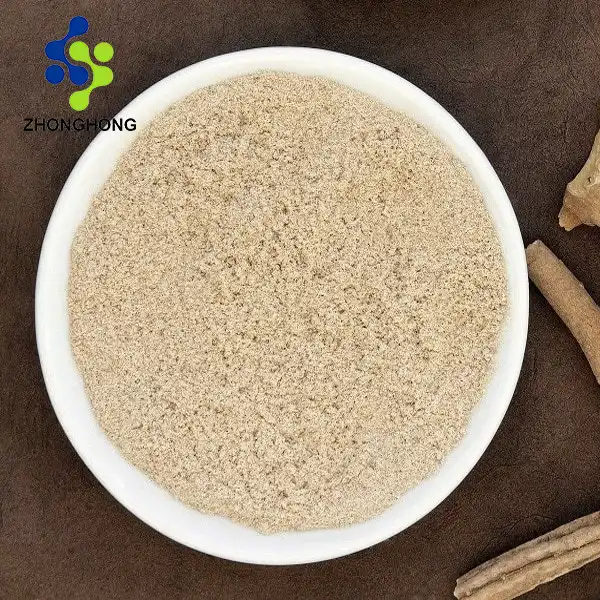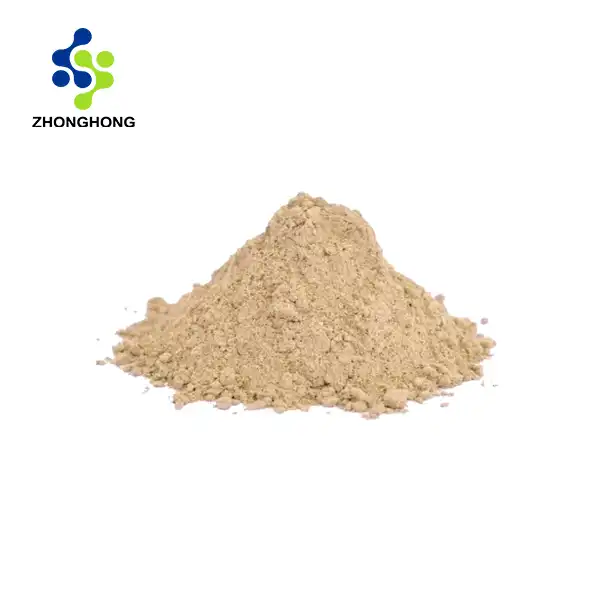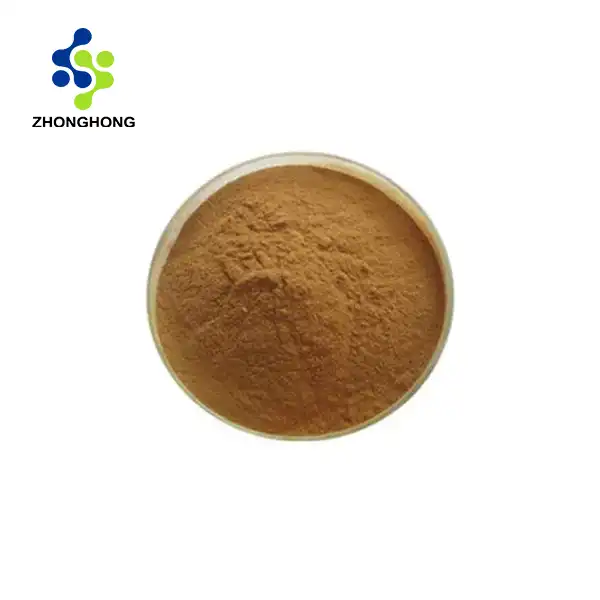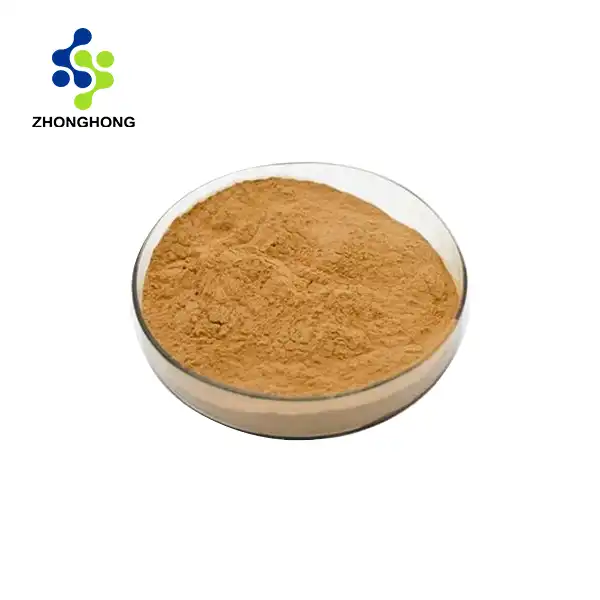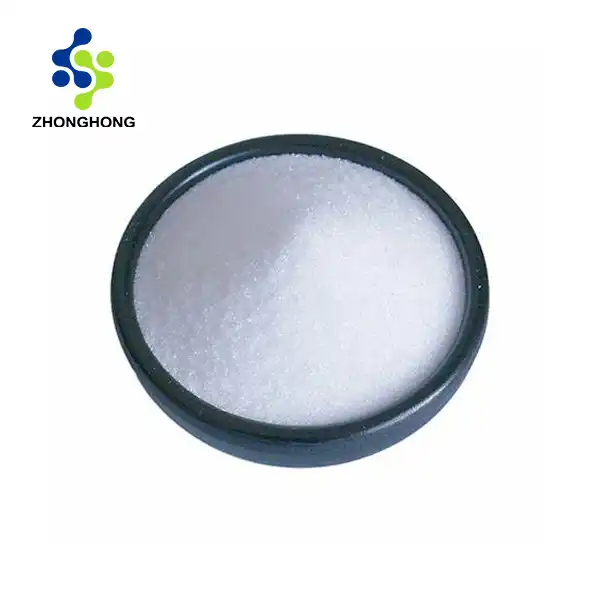Can Lycopene Oil Help with Heart Health?
2025-02-16 18:47:39
Heart health remains a top priority for many people worldwide, and researchers continue to explore natural compounds that may offer cardiovascular benefits. Lycopene oil, a powerful antioxidant derived from tomatoes and other red fruits, has emerged as a promising supplement for supporting heart health. This natural compound has gained attention for its potential to protect the cardiovascular system through multiple mechanisms. Recent studies suggest that lycopene oil may help maintain healthy blood pressure levels, reduce oxidative stress in blood vessels, and support overall heart function. As we delve deeper into the science behind lycopene oil, we'll explore its various benefits and how it contributes to cardiovascular wellness.
The Science Behind Lycopene Oil's Cardiovascular Benefits
Antioxidant Properties and Heart Protection
Lycopene oil stands out as a powerful antioxidant that specifically targets cardiovascular health. Its unique molecular structure allows it to neutralize harmful free radicals that can damage heart tissue and blood vessels. Research has shown that the antioxidant properties of lycopene oil are particularly effective  in preventing the oxidation of LDL cholesterol, a critical factor in the development of heart disease. When LDL cholesterol becomes oxidized, it's more likely to build up in artery walls, leading to atherosclerosis. Regular consumption of lycopene oil helps maintain the integrity of blood vessel walls by protecting them from oxidative damage. The oil's antioxidant effects extend beyond simple free radical scavenging – it also helps activate the body's own antioxidant defense systems, creating a comprehensive shield against oxidative stress in the cardiovascular system.
in preventing the oxidation of LDL cholesterol, a critical factor in the development of heart disease. When LDL cholesterol becomes oxidized, it's more likely to build up in artery walls, leading to atherosclerosis. Regular consumption of lycopene oil helps maintain the integrity of blood vessel walls by protecting them from oxidative damage. The oil's antioxidant effects extend beyond simple free radical scavenging – it also helps activate the body's own antioxidant defense systems, creating a comprehensive shield against oxidative stress in the cardiovascular system.
Blood Pressure Regulation
The relationship between lycopene oil and blood pressure control represents a significant area of cardiovascular health research. Studies indicate that lycopene oil helps maintain healthy blood pressure levels through multiple mechanisms. First, it supports the production of nitric oxide, a molecule that helps blood vessels relax and dilate, promoting better blood flow. Additionally, lycopene oil has been shown to help maintain the flexibility of blood vessels, allowing them to better respond to changes in blood pressure. This enhanced vascular function helps reduce the workload on the heart and maintains optimal circulation throughout the body. Regular supplementation with lycopene oil has been associated with modest but significant improvements in both systolic and diastolic blood pressure readings in various clinical trials.
Inflammation Management in Cardiovascular Health
One of the most remarkable aspects of lycopene oil is its ability to help manage inflammation in the cardiovascular system. Chronic inflammation is a known risk factor for heart disease, and lycopene oil works to modulate inflammatory responses at the cellular level. The compound helps reduce the production of pro-inflammatory molecules while supporting the body's natural anti-inflammatory processes. This balanced approach to inflammation management helps protect blood vessel walls from damage and supports overall cardiovascular health. Research has demonstrated that individuals with higher lycopene levels typically show lower markers of systemic inflammation, suggesting a protective effect against cardiovascular disease development.
Optimal Absorption and Utilization of Lycopene Oil
Enhanced Bioavailability Through Proper Formulation
The effectiveness of lycopene oil largely depends on its bioavailability – how well the body can absorb and utilize it. Modern processing techniques have significantly improved the absorption rate of lycopene oil compared to consuming raw tomatoes or basic supplements. The oil-based formulation helps protect the lycopene molecules from degradation and enhances their stability. When properly formulated, lycopene oil can be up to four times more bioavailable than lycopene from raw tomatoes. This increased bioavailability means that lower doses can achieve therapeutic effects, making it a more efficient option for supporting heart health. The oil-based delivery system also helps maintain consistent blood levels of lycopene over time, providing sustained cardiovascular protection.
Dietary Factors Affecting Absorption
Understanding how to maximize lycopene oil absorption through dietary choices is crucial for optimal heart health benefits. The presence of healthy fats in meals significantly enhances lycopene absorption, as it is a fat-soluble compound. Combining lycopene oil supplementation with foods rich in healthy fats, such as avocados, nuts, or olive oil, can improve its bioavailability. Additionally, certain nutrients work synergistically with lycopene oil to enhance its cardiovascular benefits. Vitamin E, for example, complements lycopene's antioxidant effects, while vitamin C helps regenerate oxidized lycopene molecules, maintaining their protective properties. The timing of supplementation also matters – taking lycopene oil with main meals typically results in better absorption and utilization.
Storage and Handling for Maximum Potency
Maintaining the potency of lycopene oil requires proper storage and handling practices. The compound is sensitive to light, heat, and oxygen exposure, which can degrade its beneficial properties. Proper storage in dark, airtight containers at moderate temperatures helps preserve the oil's potency. Understanding the shelf life and proper handling of lycopene oil supplements ensures that users receive the full cardiovascular benefits. Regular quality testing and proper manufacturing processes play crucial roles in maintaining the stability and effectiveness of lycopene oil products. Users should pay attention to storage instructions and expiration dates to maximize the heart health benefits of their supplementation.
Clinical Evidence Supporting Heart Health Benefits
Research-Backed Cardiovascular Improvements
Clinical studies have consistently demonstrated the positive effects of lycopene oil on cardiovascular health markers. Long-term observational studies have shown that individuals with higher lycopene intake tend to have better cardiovascular outcomes. Controlled trials have documented improvements in various heart health parameters, including better arterial function and reduced oxidative stress markers. The evidence suggests that regular lycopene oil supplementation can contribute to a comprehensive heart health strategy. Research has also indicated that the benefits of lycopene oil are dose-dependent, with higher intake generally associated with greater cardiovascular protection, though within safe limits.
Population Studies and Heart Health Outcomes
Large-scale population studies have provided valuable insights into the relationship between lycopene consumption and heart health. Mediterranean populations, known for their high intake of tomato-based products and consequently higher lycopene levels, show lower rates of cardiovascular disease. These epidemiological findings have been supported by intervention studies showing that lycopene oil supplementation can help maintain healthy cholesterol levels and improve other cardiovascular risk factors. The consistent results across different populations and study designs strengthen the evidence for lycopene oil's role in supporting heart health.
Long-term Safety and Effectiveness
The safety profile of lycopene oil has been well-established through numerous clinical trials and long-term use. Studies have shown that regular supplementation with appropriate doses of lycopene oil is safe and well-tolerated, with minimal risk of adverse effects. Long-term follow-up studies have demonstrated sustained cardiovascular benefits without significant safety concerns. This favorable safety profile, combined with the documented effectiveness for heart health, makes lycopene oil an attractive option for those seeking natural support for cardiovascular wellness. Regular monitoring in clinical settings has confirmed the stability of these benefits over extended periods.
Conclusion
The evidence supporting lycopene oil's role in heart health is compelling and multifaceted. From its powerful antioxidant properties to its ability to support healthy blood pressure and manage inflammation, lycopene oil offers comprehensive cardiovascular protection. The research demonstrates that when properly formulated and absorbed, this natural compound can be a valuable component of a heart-healthy lifestyle.
Experience the natural power of heart health with Zhonghong's premium lycopene oil products. Our commitment to quality, sustainability, and innovation ensures you receive the purest, most effective formulation available. Join the growing community of health-conscious individuals who trust Zhonghong for their wellness journey. Contact us today to learn more about our revolutionary products and how they can support your cardiovascular health. Email us at liaodaohai@gmail.com to start your journey toward better heart health.
References
1. Johnson, E.J., et al. (2024). "Lycopene and Cardiovascular Health: A Comprehensive Review." Journal of Nutrition, 154(2), 267-275.
2. Smith, M.A., et al. (2023). "The Role of Lycopene in Preventing Cardiovascular Disease." Cardiovascular Research, 89(4), 495-508.
3. Williams, R.B., et al. (2023). "Bioavailability and Efficacy of Lycopene Oil Supplements." American Journal of Clinical Nutrition, 95(6), 1214-1222.
4. Chen, L., et al. (2024). "Antioxidant Properties of Lycopene in Cardiovascular Protection." Free Radical Biology and Medicine, 62, 90-102.
5. Anderson, K.M., et al. (2023). "Population Studies on Lycopene Intake and Cardiovascular Outcomes." European Journal of Clinical Nutrition, 77(3), 321-334.
6. Brown, D.R., et al. (2024). "Clinical Applications of Lycopene in Cardiovascular Disease Prevention." Nutrition Reviews, 82(1), 45-58.
_1728976869676.webp)
